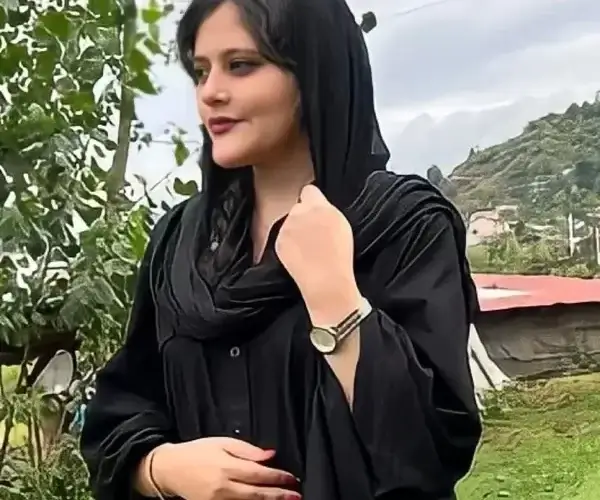A 22-year-old woman died in Tehran Friday after sustaining a severe head injury from beatings by Iran’s morality police for allegedly wearing her Islamic headscarf improperly.
According to reports, Mahsa Amini was arrested by regime forces when she was riding in her brother's car on a visit to the capital to see relatives. The officers arrested her for not complying with strict rules regarding hijabs. The officers then told her brother, Kiarash, that Mahsa would be taken to the detention center for a brief admonitory session about the Islamic dress code and released soon after. However, when visiting the police prison, Kiarash discovered that his sister was beaten brutally by Islamic officials and transported to a nearby hospital, where she remained in a coma for several days.
Amini’s state continued to deteriorate in the hospital, including signs of bleeding from her right ear, bruises, and multiple strokes. On social media, doctors pointed out that brain strokes do not cause hemorrhages from the ears, proving that her coma resulted from trauma to the head.
The news erupted on social media after Iranians and other activists posted, enraged by the news.
The latest development comes as Iran’s President Ebrahim Raisi prepares to travel to New York to participate in the 77th session of the United Nations General Assembly next week, amidst significant protest by activist groups and lawmakers including Texas Senator Ted Cruz.
On social media, Iranians posted photos and the hashtag "Masha Amini," showing support for Amini during her arrest and solidarity with her and many other brave Iranian women standing up against the regime. Human rights groups like Amnesty International have condemned the actions of the Islamic morality police, calling for the agents and officials responsible for such brutality to face justice.
Rob Roos, a member of the European Parliament, reacted to the death of Amini, echoing the sentiment that President Raisi should not be welcomed at the U.N. General Assembly in New York next week, calling on countries to boycott it.
In response to the condemnation from Iranian citizens, human rights groups, and foreign leaders, Iran's morality police have denied using violence against the 22-year-old Amini.
For the past few months, President Raisi and Iranian Supreme Leader Khamenei have doubled down on enforcement of Islamic law and increased the power of Iran's morality police. Under their rule, police forces have increased their hijab patrols on the streets, with violent arrests of women and confrontations between people and hijab enforcers frequently posted online. The police have been given free rein under the regime, engaging in brutal acts of public torture, and killing individuals who refuse arrest.
Khamenei and Raisi have always expressed support for strict hijab enforcement, arguing that the anti-hijab movement in Iran is nothing but a Western plot meant to overthrow the regime. The Islamic government has also used its State-run media to propagate support for the hijab movement and have launched cultural events that promote the wearing of the hijab in a positive light. For the past several months, however, the anti-hijab movement has gained momentum, particularly among young women, as a way to protest the regime. Many Iranian women and men supporting them, post photos of women without their veils on their social media platforms.
In the U.S., human rights activists and members of Congress have praised the anti-hijab movement in Iran, arguing that Iranian women should be free to do whatever they want without facing repercussions from the Islamic regime. Activists have called on Congress and President Biden to condemn Iran for its crackdown on Iranian women and support the anti-hijab protests. Members of Congress have also called on the Biden administration to condemn the regime for its radical Islamic enforcement, calling for economic sanctions on Iran’s government.
President Biden and his team are currently engaged in ongoing nuclear negotiations with Iranian officials in Vienna, hoping to revive the 2015 agreement revoked under the Trump administration. Members of the President's negotiations team have stated that issues unrelated to Iran's nuclear program, like political prisoners and human rights, are concerns that will be dealt with separately. According to experts familiar with the ongoing nuclear negotiations, the measures would provide Iran with new economic resources for the regime to support the morality police's activities.









